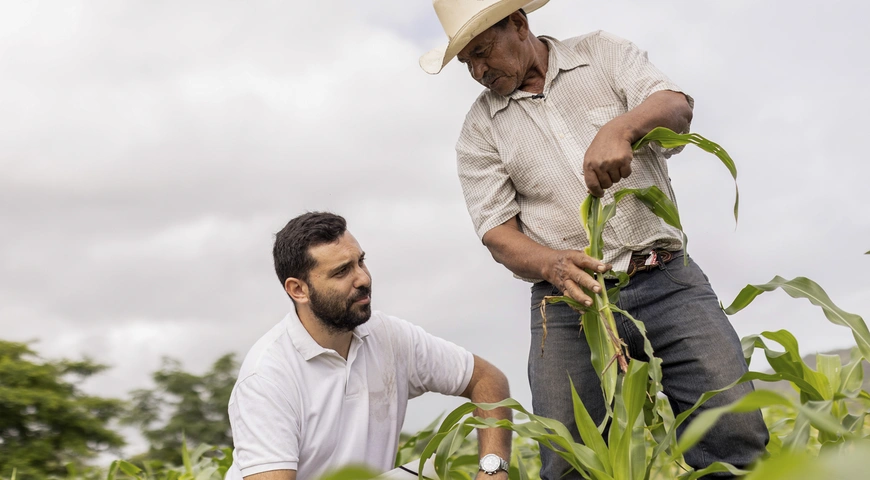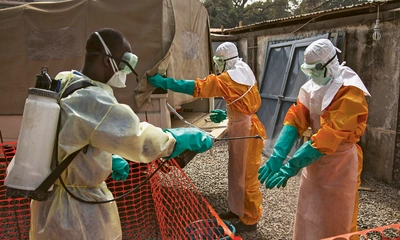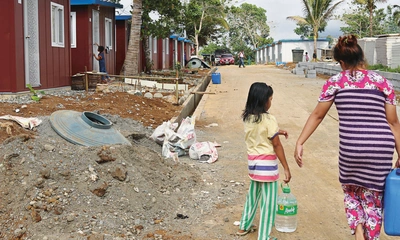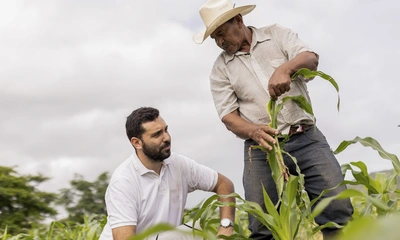Navigating the Triple Nexus
A new study explores how the Triple Nexus is implemented by Unité's member organisations and their partners in the global South. It calls for modesty. Instead of programmatic expansion, increased reporting burdens or budgetary overreach, the Nexus should be an opportunity to empower local partners.

An environmental economist on assignment with Comundo and a Nicaraguan farmer are developing new cultivation methods to make agriculture more resilient to climate change. Photo: KubaOkon, Comundo (2022)
The Humanitarian-Development-Peace(building) Nexus – called the Triple Nexus – has become a guiding principle in international cooperation. For donors like the Swiss Agency for Development and Cooperation (SDC), it is both a reporting requirement and a guiding principle for programme design and implementation. But how is the Nexus actually implemented on the ground?
To gain deeper insight, Unité has commissioned a study on its application within the development programmes of its member organisations and their partners in the global South. Conducted by Dr. Oliver Jütersonke, the study «Navigating the Triple Nexus – Lessons and Insights from Across Unité’s Ecosystem» examines the diverse understandings, practices, and aspirations in Unité’s members and their partners. It explores challenges in reporting and proposes practical action points for the future.
The findings are encouraging. Many Unité members and their partners already apply Nexus Thinking and conflict-sensitive programme management in their daily work. They analyse their environment, coordinate with other actors and strengthen social cohesion in local communities. Often, they just lack the international jargon to explicitly label it like that or the courage to consider results in peace building and conflict prevention as systemic changes. Therefore, many contributions remain underreported.
The role of local actors in navigating complex environments and leading context specific responses is crucial. Their proximity to the context equips them with vital knowledge and a wide network. The more fragile the setting, the more important it becomes to support partner organisations not only as implementing partners, but as sovereign decision-makers, capable of navigating complex dynamics and adjusting strategies accordingly.
Based on the analysis the author recommends six practical steps to Unité and its members organisations, including for example regular actor mappings and conflict analysis, fostering familiarity with the Nexus in every entity of the organisation and encouraging reporting on micro-level peace contributions through qualitative evaluation methods.
While primarily intended for Unité’s internal audience, the study offers valuable insights for all development actors interested in a pragmatic implementation of the Triple Nexus.
Dr. Oliver Jütersonke is a Geneva-based strategic advisor with extensive in-country experience in conflict-affected settings across Sub-Saharan Africa and Asia. He collaborates with international organisations, national authorities, and civil society networks on matters of peace and security, humanitarian action, and sustainable development.



